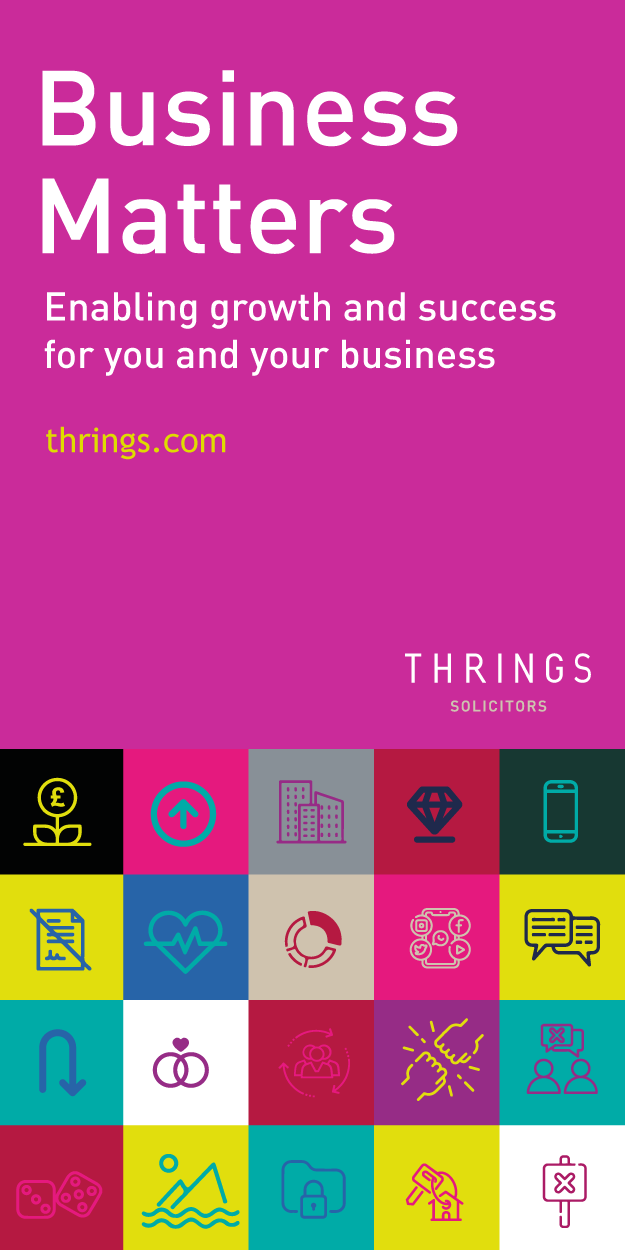

How to look after your team… without falling foul of the taxman
If looking after your team involves giving rewards and benefits, then you need to follow the rules to avoid falling foul of HMRC, warns Michael Blaken of Optimum Professional Services.
It was Richard Branson who said, “Clients don’t come first. Employees come first. If you take care of your employees, they will take care of the clients.”
So it makes sense to look after your team.
But, beware! Because if looking after your team involves giving rewards and benefits, then you need to follow the rules to avoid falling foul of HMRC.
Some things you give your staff will be tax free, some won’t.
Here’s what you need to know.
Gifts and rewards valued at £50 or less (including VAT) are considered trivial benefits. This can include items like a bottle of wine, a birthday cake, or a round of drinks.
As long as these benefits are not part of an employee’s contract, and are not cash or cash-redeemable vouchers, they are tax-free for the employee and a deductible business expense for the employer.
Do note, directors of ‘close companies’ (companies with five or fewer shareholders) are limited to an annual total of £300 in trivial benefits, a restriction that does not apply to other employees. These benefits must not be a reward for performance or part of a salary package.
You can host annual company events, such as a summer barbecue or Christmas party, and spend up to £150 per head (including VAT) each tax year. To be tax-exempt, these events must be open to all employees.
Events can be organised at a departmental or office level; they do not have to be company wide.
Providing company pension contributions help your team save for their future while also reducing your business’s National Insurance bill. The cost of these contributions is fully deductible for the business.
You can offer up to £500 per employee per year for professional pension advice, which is tax-free and a deductible business expense. To be eligible for tax and National Insurance relief, this benefit must be available to all employees or a qualifying group, such as those nearing retirement.
For employees required to work from home, you can provide a tax-free allowance of up to £6 per week to cover additional household costs. This can be paid directly by the company or claimed by the employee via HMRC’s Form P87. This is a deductible expense but is only available to employees whose contracts mandate remote work, not those who work from home voluntarily.
When employees use their personal vehicles for business travel – excluding their commute – you can reimburse them at HMRC’s approved rates without incurring a tax charge. The current tax-free rates are 45p per mile for the first 10,000 miles in a tax year, and 25p per mile thereafter.
For employees driving a company car, mileage reimbursement is based on HMRC’s Advisory Fuel Rates, which are updated quarterly and vary by fuel type and engine size.
Providing a company mobile phone to an employee is a simple, tax-free benefit for them and a fully deductible expense for your business. Each employee is limited to one company phone, and the contract must be between the employer and the service provider.
There are a number of steps you can take that support the health and wellbeing of your team, these include:
- One tax-free health screening and one medical check-up per employee per year.
- Cycle to work scheme – employees can acquire a bike and safety accessories through a salary sacrifice arrangement. This allows them to save on Income Tax and National Insurance, while the business can also claim the costs. To qualify, employees must be at least sixteen years old and their post-sacrifice earnings must not fall below the national minimum wage. The bike must be used primarily (over 50% of the time) for commuting.
- Employers can provide tax-free eye tests for employees who regularly use computer screens, as required by health and safety regulations. If the test determines that an employee needs glasses or contact lenses specifically for screen-based work, the business can also cover the cost of these. This benefit applies only to work-related needs, not for general daily use.
- Welfare counselling to support your team’s mental health may also be a tax-free benefit, provided it meets HMRC criteria. Eligible topics include work-related stress, debt or alcohol dependency, grief and bereavement, and bullying and harassment.
Why not reward innovative ideas with a formal staff suggestion scheme. You can offer tax-free payments of up to £5,000 for suggestions that result in financial savings for your business.
To qualify, the scheme must be open to all employees or a specific group. The suggestion itself must be a new idea related to the business, not part of an employee’s normal duties, and not presented in a formal proposal meeting.
You can also offer a smaller, tax-free encouragement award of up to £25 for any good suggestion, even if it is not implemented.
Why not introduce long service awards? For staff with 20 or more years of service, you can provide a non-cash award worth up to £50 for each year of service. To be tax-exempt, a similar award cannot have been given to the employee within the last ten years.
Many businesses have a salary sacrifice scheme. This allows employees to exchange a portion of their gross salary for non-cash benefits like pension contributions, bicycles, or electric cars.
This arrangement reduces the business’s National Insurance costs and provides employees with a tax-efficient way to pay for benefits, as both Income Tax and National Insurance Contributions are reduced.
Looking after your team also reap rewards in terms of recruitment. Offering employee benefits can help attract talented job applicants, who are looking at more than just the salary offered. But our advice is, make sure you check HMRC rules before being overly generous, so you stay on the right side of the tax rules.
Michael Blaken is accounts director at Optimum Professional Services
Image: Pexels
Planning to sell a business? Here’s how to get ready – Optimum
Read more27.08.2025
Company directors: what’s a tax-efficient salary to pay yourself? – Optimum Professional Services
Read more02.07.2025
Are you losing out by handling your own payroll? – Optimum Professional Services
Read more29.05.2025
Starting a business? Here’s what you need to know – Optimum Professional Services
Read more02.04.2025
Driving a double cab pickup? They’ll be classed as cars for tax purposes from April
Read more26.02.2025
Optimum Professional Services
Read more13.01.2025
Professional services firm Optimum to host free networking breakfast
Read more08.01.2025
You’d better watch out… there are tax rules for festive giving – Optimum Professional Services
Read more21.11.2024










